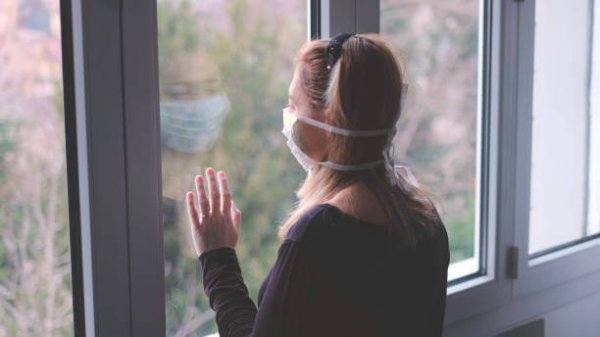Psychological Reactance during Lockdown

The restrictions imposed by the current situation are intended to stop the spread of the coronavirus. Despite the seriousness of the situation, many people aren’t complying with the measures. Are they just a few irresponsible people or are they, perhaps, victims of the psychological backlash? In this article, we analyze the psychological reactance during lockdown.
After the evolution of the epidemic in China, cases started to appear in other parts of the world. This news was followed with relative calm due to the relatively low number of cases. However, within a matter of weeks, the number of infections increased to such a point that it made governments enforce containment measures.
Educational and leisure centers were closed in many countries, and people had to suspend or cancel events. In addition, governments asked companies to facilitate teleworking for their employees. These measures had varying degrees of success.
Governments intensified measures to try to limit the risk of the virus spreading. They urged citizens not to leave their homes, except to acquire essential goods, go to work (if they couldn’t do it from home), care for the elderly and/or dependent people, or in emergencies. Some countries allowed people to exercise and visit cafés.

The first psychological reactions of lockdown
These measures have had varying responses in different societies. For example, in some countries, people raided supermarkets and bought all the masks, gloves, and hand sanitizer they could get their hands on.
This may have happened out of the fear of having to follow strict confinement, to avoid having to go to crowded places later on (when the risk of contagion was greater), or out of fear of shortages.
The second response was that may people didn’t take these measures seriously, especially in the early, less restrictive stages.
When school was suspended, young people even visited bars and had parties. Some parks were full of children, many of whom were taken care of by their grandparents (the most at-risk group).
Many people who were teleworking and students returned to their cities and towns of origin. There were even entire families who decided this was an opportunity to vacation in their second homes.
Why did people break the lockdown?
Jack Brehm spent time studying the consequences of limiting people’s freedom and coined the term “psychological reactance”. Reactance is a motivational or emotional reaction that arises when people’s freedom is limited or threatened and they aim to recover that freedom again.
Decharms also studied this issue. He explained that the need to freely choose behavior (the need for self-determination) is a primary motivation. Therefore, when a person perceives that their freedom has been compromised, psychological reactance manifests. This depends on several factors.
Factors for psychological reactance
- The expectation of freedom. This means that the greater the sense of freedom, the greater the psychological reactance to limitations. No one ever imagined that we wouldn’t be allowed to leave our houses.
- The importance of freedom. If freedom is important to a person, its limitation will cause a greater psychological reactance. After all, what could be better than going out for a meal with friends on a Friday night after an exhausting work week?
- The threat. The greater the threat, the greater the psychological reactance during lockdown. We can handle being banned from attending events but not being banned from the streets.
- The greater the number of things we could do before that we now can’t, the greater the psychological reactance during lockdown. Not only are we not allowed to go to work but neither can we go to the movies or have a cup of coffee with friends.
- The legitimacy of the limitation. Legitimacy usually reduces psychological reactance. However, in some cases, it has contradictory effects. For example, some countries have complained because they believe their governments haven’t taken appropriate measures.

How people try to restore lost freedom
- Direct restoration. When people do exactly what’s been forbidden or, at least, something similar. A clear example is the people who have flocked to parks and beaches in direct disobedience to government instructions.
- Indirect restoration. This is when people carry out equivalent behavior to show that they’re determined to do what clearly isn’t allowed. For example, someone who goes to the supermarket every day or walk their dogs five times a day.
- Subjective responses. This explains why something that we’re forbidden to do will almost inevitably be perceived as more attractive and valuable. It’s the classic “You never know what you have until you lose it”.
- Hostility and aggression towards those imposing the limitations. Whether this occurs or not depends on the factors we explained above.
In conclusion
This situation will pass. Thus, we must believe that everything will eventually go back to normal. For the time being, we must fight against this psychological reactance during lockdown and stay at home. Together, we can flatten the curve and save lives.
This text is provided for informational purposes only and does not replace consultation with a professional. If in doubt, consult your specialist.








